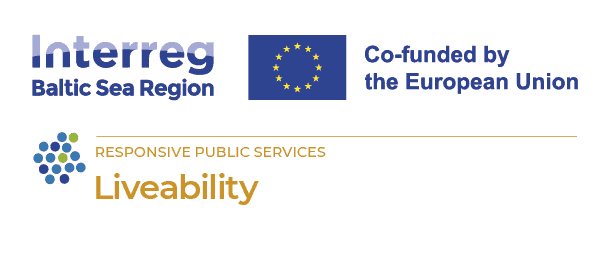
Liveability brochure - first issue released
27 July 2023
The Liveability partnership recently met in Kolding, a UNESCO City of Design from 12-13 June to exchange, collaborate, and delve deeper into realising the project’s goals. The two-day meeting, hosted by Business Kolding, consisted of a ‘Liveability’ seminar, a study tour, and a dedicated day for internal project partner working meetings with the aim of fostering direct exchange among project partners.
The ‘Liveability’ seminar, 12 June, attended by 40 participants including project partners, Public Interest Design (PID) change agents and implementers, proved to be a platform for transnational exchange and learning. Apart from receiving an overview of the Liveability project’s concepts and project progress, the participants gained first-hand knowledge on the ongoing design driven innovation in Kolding as well as insights on how to make cities more liveable through neighbourhood cooperation. Two key takeaways of the Liveability seminar are:
- Prioritizing citizen engagement and employing design thinking as a primary innovation method for public services is crucial for creating liveable cities.
- It is essential for municipalities to foster a culture of knowledge sharing, aiming for continuous improvement by learning from both successes and failures.
The Liveability project is positioned at the heart of such innovative thinking. A capacity building programme to train public authorities in PID, a charter with guiding principles including characteristics of a liveable city and a use case guide to inspire and learn are key components of the project that were discussed in Kolding.
On the second day, 13 June, the internal project partner working meeting were designed to be a series of interactive sessions. The active participation of project partners resulted in fruitful discussions and served as an inspiration for partners to advance in their efforts. Furthermore, the work done thus far on developing a common understanding of PID and its implications on making cities liveable was presented. Inputs and ideas gathered on PID principles, the charter, and the training programme will supplement further work.
Overall, the face-to-face project partner meeting was a success, and the partnership plans to meet again in September in Pori, Finland to continue the transnational exchange.





